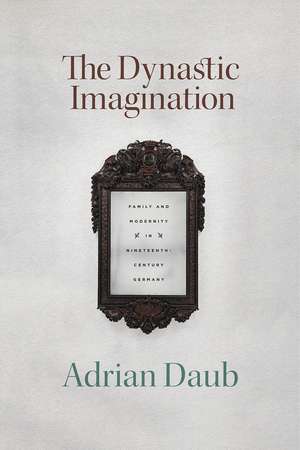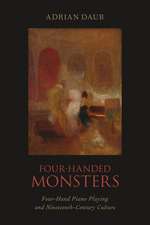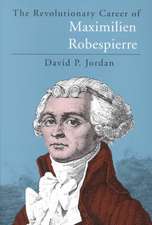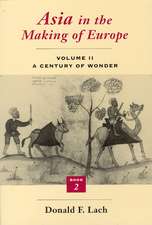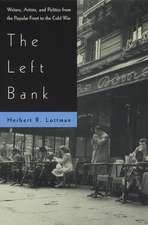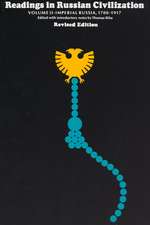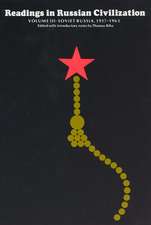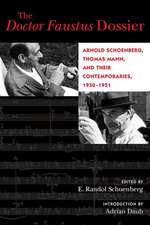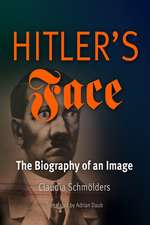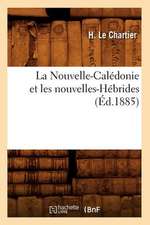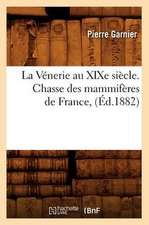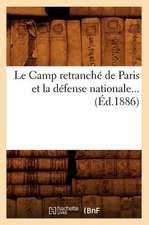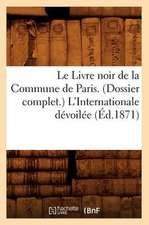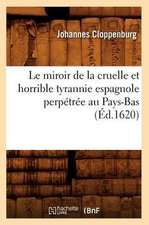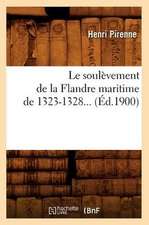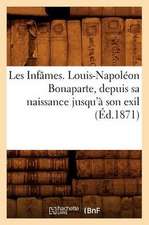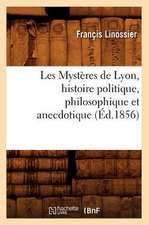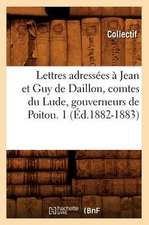The Dynastic Imagination: Family and Modernity in Nineteenth-Century Germany
Autor Adrian Dauben Limba Engleză Paperback – 28 ian 2021
Toate formatele și edițiile
| Toate formatele și edițiile | Preț | Express |
|---|---|---|
| Paperback (1) | 232.33 lei 6-8 săpt. | |
| University of Chicago Press – 28 ian 2021 | 232.33 lei 6-8 săpt. | |
| Hardback (1) | 674.32 lei 6-8 săpt. | |
| University of Chicago Press – 28 ian 2021 | 674.32 lei 6-8 săpt. |
Preț: 232.33 lei
Nou
Puncte Express: 348
Preț estimativ în valută:
44.46€ • 46.75$ • 36.73£
44.46€ • 46.75$ • 36.73£
Carte tipărită la comandă
Livrare economică 16-30 aprilie
Preluare comenzi: 021 569.72.76
Specificații
ISBN-13: 9780226737874
ISBN-10: 022673787X
Pagini: 256
Dimensiuni: 152 x 229 x 25 mm
Greutate: 0.35 kg
Ediția:First Edition
Editura: University of Chicago Press
Colecția University of Chicago Press
ISBN-10: 022673787X
Pagini: 256
Dimensiuni: 152 x 229 x 25 mm
Greutate: 0.35 kg
Ediția:First Edition
Editura: University of Chicago Press
Colecția University of Chicago Press
Notă biografică
Adrian Daub is professor of comparative literature and German studies at Stanford University, where he also directs the Michelle R. Clayman Institute for Gender Research.
Cuprins
Introduction: An Essay on Mediate Family
Chapter 1: Into the Family Gallery
Chapter 2: Nuclearity and Its Discontents
Chapter 3: Abortive Romanticism
Chapter 4: Feminism, or The Hegelian Dynasty
Chapter 5: Wagner, or The Bourgeois Dynasty
Chapter 6: Naturalism, or The Dynastic Romance
Chapter 7: Freud, or The Reluctant Patriarch
Chapter 8: George, or The Queer Dynasty
Epilogue: Black Sheep
Acknowledgments
Notes
Index
Chapter 1: Into the Family Gallery
Chapter 2: Nuclearity and Its Discontents
Chapter 3: Abortive Romanticism
Chapter 4: Feminism, or The Hegelian Dynasty
Chapter 5: Wagner, or The Bourgeois Dynasty
Chapter 6: Naturalism, or The Dynastic Romance
Chapter 7: Freud, or The Reluctant Patriarch
Chapter 8: George, or The Queer Dynasty
Epilogue: Black Sheep
Acknowledgments
Notes
Index
Recenzii
“The Dynastic Imagination is an utterly engrossing study that rethinks the very terms in which we pose questions about an era. In beautiful, lucid prose, Daub leads the reader through the metamorphoses of the concepts of the dynasty and the nuclear family, beginning with the shock waves of the French Revolution and extending well into the twentieth century. One of Daub’s many noteworthy accomplishments in this volume is his deft interweaving of history of science, literary criticism, and cultural history. This book represents an important and exciting contribution to intellectual history.”
“When we admit that modernity began as an antigenealogical experiment, which manifested in an antiauthoritarian, antipatriarchal, and antifamilial society, how can we understand our position in this transformed world? How do we try to escape the loneliness of extreme individualism? How do we recuperate a sense of family? These are unsettled waters, and Daub plumbs them to their greatest depths. His interlocutors—from Goethe to Stefan George—put thought into what the great experiment does to and with them.”
"The Dynastic Imagination is a pathbreaking, polyphonic intellectual history of modern dynastic and antidynastic thought. Ranging from the French Revolution to the aftermath of World War I (with an epilogue on the aftermath of World War II), this broad yet highly focused study shows how questions of inheritance and legitimacy underwrite many major intellectual movements, from Romanticism to naturalism to feminism and psychoanalysis."
"Daub’s excavation of what the literary bourgeois believed about history and their own moment is something that historians of the family could take up productively to see some of the ways that it translated in reality."
"[The Dynastic Imagination] is an intellectual-historical exploration of the pervasive engagement with notions of 'dynasty,' generally in tension with notions of 'family' of a more nuclear sort, as they operate across a range of works written during the long nineteenth century . . . Daub delves deeply into the lives and thought of his selected subjects, in chapters that range across many aspects of dynasty and family as intellectual (and political) constructs."
